 |
Bibliography for Software Engineering Education |
| << Program Implementation and Assessment |
| Detailed Descriptions of Proposed Courses >> |
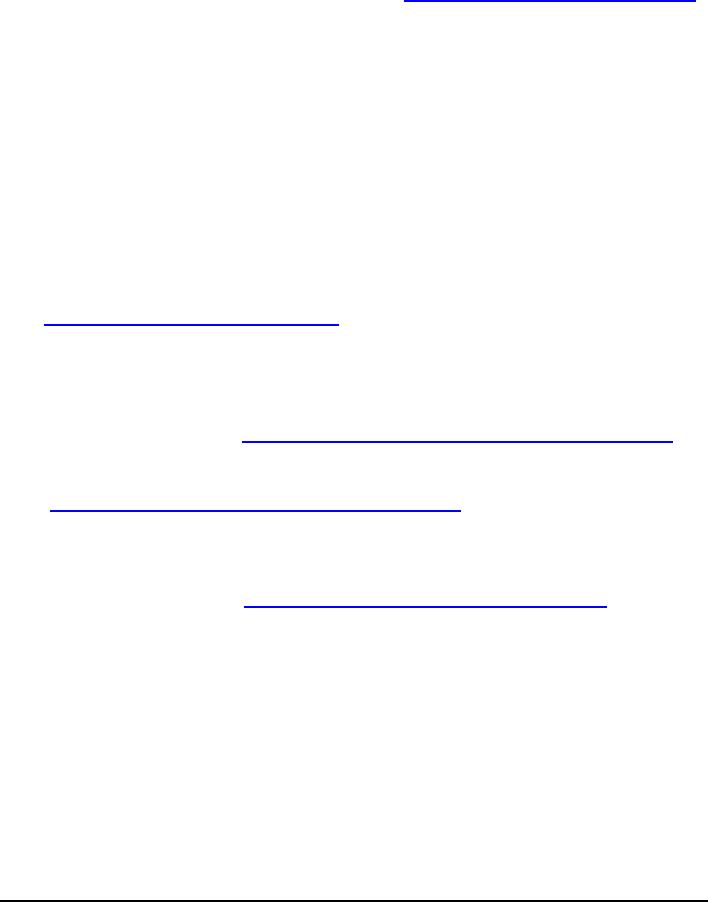
Bibliography
for Software Engineering
Education
[Abelson
1985] Abelson, H. and SussmanG. J., Structure
and Interpretation of Computer
Programs. Cambridge,
MA: MIT Press, 1985.
[ABET
2000] Accreditation Board
for Engineering and Technology,
Accreditation
policy and
procedure
manual,
ABET Inc., November 2000.
(http://www.abet.org/images/policies.pdf)
[ACM 1965]
ACM Curriculum Committee on Computer
Science, "An undergraduate program
in computer
science--preliminary recommendations", Communications of
the ACM,
September
1965.
[ACM 1968]
ACM Curriculum Committee on Computer
Science, "Curriculum '68:
Recommendations
for the undergraduate
program in computer science",
Communications
of the
ACM, March
1968.
[ACM 1978]
ACM Curriculum Committee on Computer
Science, "Curriculum '78:
Recommendations
for the undergraduate
program in computer science",
Communications
of the
ACM, March
1979.
[ACM 1989]
ACM Task Force on the Core of Computer
Science, "Computing as a
Discipline",
Communications of
the ACM, January
1989.
[ACM 1998]
ACM/IEEE-CS Joint Task Force on
Software Engineering Ethics and
Professional
Practices,
Software
Engineering Code of Ethics and
Professional Practice, Version
5.2,
http://www.acm.org/serving/se/code.htm,
September 1998.
[ACM 1999]
ACM
Two-Year College Education Committee.
Guidelines for
associate-degree
and
certificate programs to support
computing in a networked
environment,
The
Association
for Computing Machinery,
September 1999.
[ACM 2001]
ACM/IEEE-Curriculum 2001 Task Force, Computing
Curricula 2001,
Computer
Science
,
December 2001. (http://www.computer.org/education/cc2001/final/index.htm)
[ACM 2002]
ACM/IEEE-Curriculum 2001 Task Force, Computing
Curricula 2003:
Guidelines
for
Associate-Degree Curricula in Computer
Science, December
2002.
(http://www.acmtyc.org/reports/TYC_CS2003_report.pdf)
[Andrews
2000] Andrews, J.H. and
Lutfiyya, H.L., "Experiences
with a Software
Maintenance
Project
Course",
IEEE Transactions on
Education, November
2000.
[APP
2000] Advanced Placement
Program, Introduction
of Java in 2003-2004, The
College
Board,
December 2000. (http://www.collegeboard.org/ap/computer-science)
[Bagert
1999] Bagert, D., et.
al., Guidelines
for Software Engineering
Education, Version
1.0,
CMU/SEI-99-TR-032,
Software Engineering Institute, Carnegie
Mellon University,
1999.
[Barnes
1998] Barnes, B., et. al.,
"Draft Software Engineering
Accreditation Criteria",
Computer, April
1998.
[Barta
1993] Barta, B.Z., Hung,
S.L. and Cox K.R. (Eds),
IFIP Transactions A40,
Software
Engineering
Education, Proceedings of the
IFIP W.G. 3.4/SRIG-ET
(SEARCC)
International
Working Conference, Hong
Kong, September 1993,
North-Holland,
Amsterdam,
1993.
[Bauer
1972] Bauer, F.L., "Software
Engineering", Information
Processing, 71,
1972
SE2004
Volume 8/23/2004
75
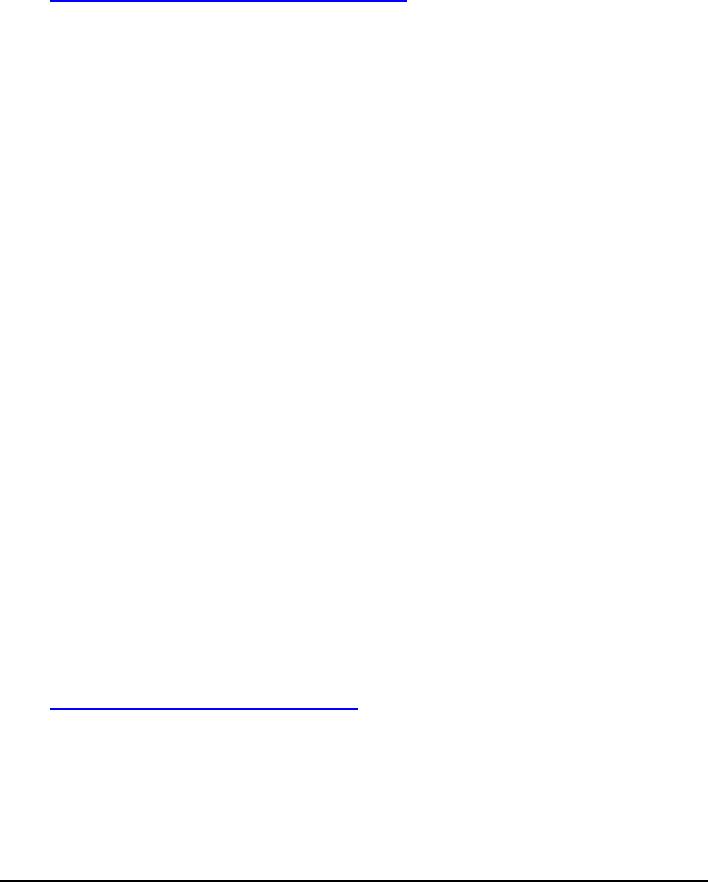
[BCS
1989a] British Computer
Society and The Institution of
Electrical Engineers,
Undergraduate
curricula for software
engineers, London,
June 1989.
[BCS
1989b] British Computer
Society and The Institution of
Electrical Engineers, Software
in
safety-related
systems, London,
October 1989.
[BCS
2001] British Computer
Society, Guidelines
On Course Exemption & Accreditation
For
Information
For Universities And
Colleges, August
2001.
(http://www1.bcs.org.uk/link.asp?sectionID=1114)
[Beidler et
al, 1985] Beidler, J.,
Austing, R. and Cassel L.,
Computing Programs in Small
Colleges,
Communications of
the ACM, June
1985.
[Bennett
1986] Bennett, W., A
Position Paper on Guidelines
for Electrical and
Computer
Engineering
Education, IEEE
Transactions in Education, August
1986.
[Bloom
1956] Bloom, ] B. S.,Ed., Taxonomy
of educational objectives: The
classification of
educational
goals: Handbook I, cognitive
domain.
Longmans, 1956.
[Bourque
2001] P. Bourque and R. Dupuis,
eds. Guide
to the Software Engineering Body
of
Knowledge, IEEE CS
Press, 2001.
[Borstler
2002] Borstler, J. et. al.,
Teaching PSP: Challenges and
Lessons Learned , IEEE
Software,
September/October 2002.
[Bott
1995] Bott, F., et.
al., . Professional Issues in Software
Engineering, 2nd
Ed.,
UCL Press,
1995.
[Brooks
95] Brooks, F. P., The
Mythical Man-Month, Essays on
Software Engineering,
Anniversary
Edition,
Addison-Wesley, 1995.
[Budgen
2003] Budgen, David and
Tomayko, James E., Norm
Gibbs and His Contribution
to
Software
Engineering Education Through
the SEI Curriculum Modules,
Proceedings
of
the
16th Conference on CSEE&T, March
2003.
[Burnell
2002] Burnell, L.J., Priest,
J.W., and Durrett, J.R.,
Teaching Distributed
Multidisciplinary
Software Development, IEEE
Software,
September/October, 2002.
[Buxton
1970] Buxton, J.N. and
Randell, B. (editors) Software
Engineering Techniques,
Report
of a
Conference Sponsored by NATO Science
Committee (Rome, 27 31 October,
1969),
1970.
[Carnegie
1992] Carnegie Commission on Science,
Technology, and Government, Enabling
the
Future:
Linking Science and Technology to Societal
Goals, Carnegie
Commission,
September
1992.
[Cheston
2002] Cheston, G. A. and
Tremblay,
Jean-Paul,
Integrating Software Engineering
in
Introductory
Computing Courses, IEEE
Software,
September/October 2002.
[CEAB
2002] Canadian Engineering Accreditation
Board, Accreditation
Criteria and
Procedures, Canadian
Council of Professional Engineers,
2002.
(http://www.ccpe.ca/e/files/report_ceab.pdf
)
[COSINE,
1967] COSINE Committee,
Computer Science in Electrical
Engineering.
Washington,
DC: Commission on Engineering
Education, September
1967.
[Cowling
1998] Cowling, A., The
First Decade of an Undergraduate
Degree Programme in
Software
Engineering, Annals of
Software Engineering, vol. 6, pp
61-90, 1998
SE2004
Volume 8/23/2004
76
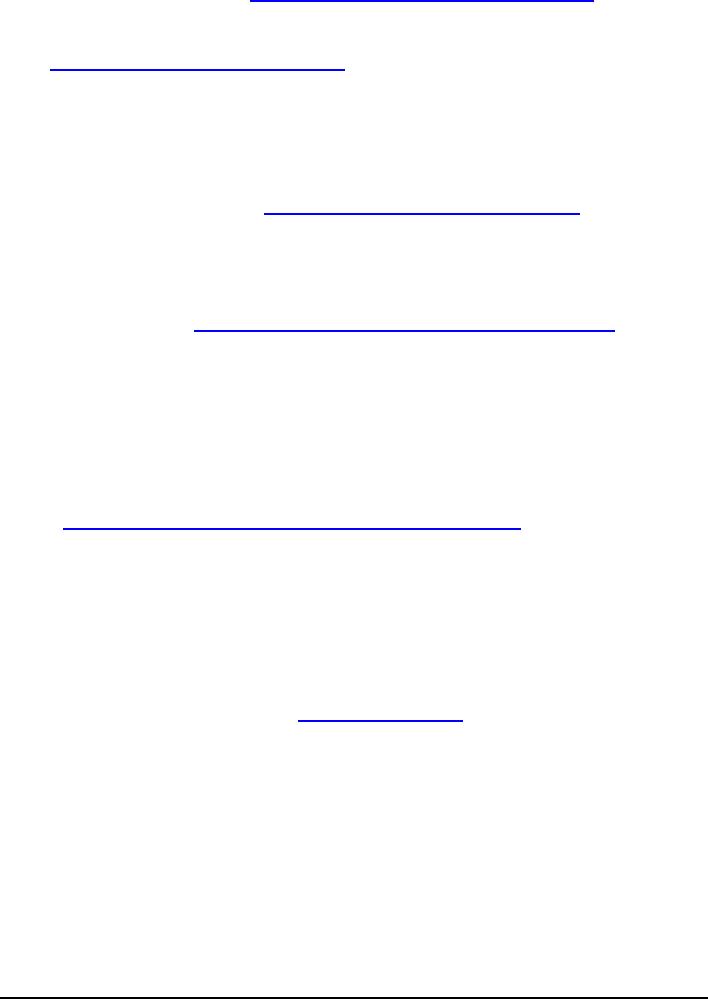
[CSAB
1986] Computing Sciences
Accreditation Board, Defining
the Computing Sciences
Professions, October
1986. (http://www.csab.org/comp_sci_profession.html)
[CSAB
2000] Computing Sciences
Accreditation Board, Criteria
for Accrediting Programs
in
Computer
Science in the United
States, Version
1.0, January 2000.
(http://www.csab.org/criteria2k_v10.html)
[CSTB
1994] Computing Science and
Telecommunications Board, Realizing
the Information
Future, Washington
DC: National Academy Press,
1994.
[CSTB
1999] Computing Science and
Telecommunications Board, Being
Fluent with
Information
Technology, Washington
DC: National Academy Press,
1999.
[Curtis
1983] Curtis, K.K., Computer
manpower: Is there a crisis?
Washington
DC: National
Science
Foundation, 1983. (http://www.acm.org/sigcse/papers/curtis83/)
[Cybulski
2000] Cybulski, J.L. and
Linden, T., Learning Systems
Design with UML and
Patterns, IEEE
Transactions on Education, November
2000
[Davis
1997] Davis, G.b., et.
al., IS'97
Model Curriculum and Guidelines
for Undergraduate
Degree
Programs in Information
Systems,
Association of Information Technology
P
rofessionals,
1997. (http://webfoot.csom.umn.edu/faculty/gdavis/curcomre.pdf)
[Denning
1989] Denning, P.J., et.
al., Computing as a Discipline,
Communications of
the ACM,
January
1989.
[Denning
1992] Denning, P. J., Educating a
New Engineer, Communications of
the ACM,
December, December
1992.
[Denning
1998] Denning, P.J.,
Computing the profession, Educom
Review, November
1998.
[Denning
1999] Denning P.J., Our
Seed Corn is Growing in the
Commons, Information
Impacts
Magazine, March
1999.
(http://www.cisp.org/imp/march_99/denning/03_99denning.htm)
[EAB
1983] Educational Activities
Board, The
1983 Model Program in Computer
Science and
Engineering,
Technical
Report 932, IEEE Computer
Society, December 1983.
[EAB
1986] Educational Activities
Board, Design
Education in Computer Science
and
Engineering, Technical
Report 971, IEEE Computer
Society, October
1986.
[EC
1977] Education Committee of
the IEEE Computer Society,
A
Curriculum in Computer
Science
and Engineering,
Publication EHO119-8, IEEE
Computer Society, January
1977.
[ECSA
2000] Engineering Council Of
South Africa, Policy
on Accreditation of University
Bachelors
Degrees, August
2000. (http://www.ecsa.co.za/)
[Fairley
1985] Fairley, R., Software
Engineering Concepts,
McGraw-Hill, 1985.
[Finkelstein
1993] Finkelstein, A.,
European Computing Curricula: A
Guide and Comparative
Analysis,
Computer
Journal, vol.
36, no. 4, pp 299-319,
1993.
[Fleddermann
2000] Fleddermann, C.B.,
Engineering Ethics Cases for
Electrical and Computer
Engineering
Students, IEEE
Transactions on Education, vol
43, no 3, 284 287,
August
2000.
[Ford
1994] Ford, G., A
Progress Report on Undergraduate
Software Engineering
Education,
CMU/SEI-94-TR-11,
Software Engineering Institute, Carnegie
Mellon University,
May
1994.
SE2004
Volume 8/23/2004
77
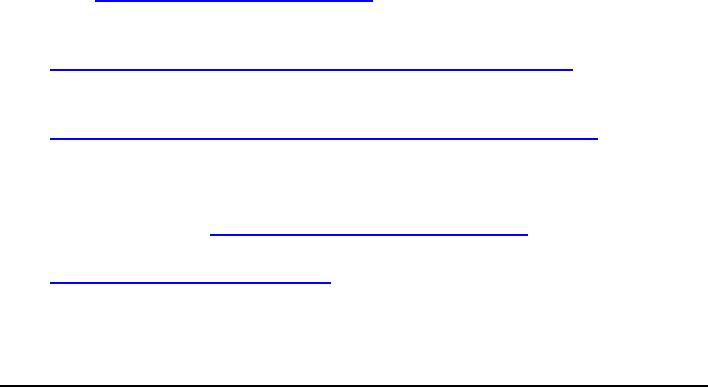
[Ford
1996] Ford, G. and Gibbs, N.
E., A
Mature Profession of Software
Engineering,
CMU/SEI-96-TR-004,
Software Engineering Institute, Carnegie
Mellon University,
January
1996.
[Freeman
1976] Freeman, P., Wasserman, A.I. and
Fairley, R.E., Essential
Elements of Software
Engineering
Education, Proc.
of the 2nd International Conference on
Software
Engineering, IEEE
Computer Society Press,
1976, pp. 116-122.
[Freeman
1978] Freeman, P. and Wasserman, A.I., A
Proposed Curriculum for
Software
Engineering
Education, Proc.
of the 3rd International Conference on
Software Engineering,
Atlanta,
1978, pp. 56-62.
[Gibbs
1986] Gibbs, N.E. and
Tucker, A. B., Model
Curriculum for a Liberal
Arts Degree in
Computer
Science, Communications of
the ACM,
29(3):202-210, March
1986.
[Giladi
1999] Giladi, R., An
Undergraduate Degree Program
for Communications Systems
Engineering,
IEEE
Transactions on Education, vol
42, no 4, 295 304, November
1999.
[Glass
2003] Glass, R. L., A Big
Problem in Academic Software
Engineering and a Potential
Outside-the-Box
Solution, IEEE
Software, Vol.
20, No. 4, July/August
2003.
[Gorgone
2002] Gorgone, J. T., et.
al., IS 2002: Model
Curriculum for Undergraduate
Degree
Programs in
Information Systems, published by the
ACM, 2002.
[Hilburn
2002a] Hilburn, T. B. Software
Engineering Education: A Modest Proposal,
IEEE
Software, Vol.
14, No. 4, November
1997.
[Hilburn,
2002b] Hilburn, T. B. and Humphrey, W.
S., The Impending Changes in
Software
Education,
IEEE
Software, Vol
19, No. 5, September /
October, 22 24,
2002.
[Hilburn,
2003] Hilburn, T.B., A.E.K.
Sobel, G.W. Hislop and R. Duley,
"Engineering an
Introductory
Software Engineering Curriculum,
Proceedings of the
16th Conference on
CSEE&T, 99-106,
March 2003.
[Hunter
2001] Hunter, R. and Thayer, R. H.
(editors) Software
Process Improvement, IEEE
Computer
Society, Los Alamitos, CA,
2001.
[IEI 2000]
The Institution of Engineers of
Ireland, Accreditation
of Engineering Degrees,
May
2000.
(http://www.iei.ie/Accred/accofeng.pdf)
[ISA
1999] Institution of Engineers,
Australia, Manual
For The Accreditation Of
Professional
Engineering
Programs, October
1999.
(http://www.ieaust.org.au/membership/res/downloads/AccredManual.pdf)
[ISRI
2003] Institute for Software
Research, International, PhD Program in
Software
Engineering,
School of computer Science Carnegie
Mellon University,
2003.
(http://www-2.cs.cmu.edu/afs/cs.cmu.edu/project/isri/www/Design/phd.html)
[IEEE
1990] IEEE STD 610.12-1990,
IEEE
Standard Glossary of Software
Engineering
Terminology, IEEE
Computer Society,
1990.
[IEEE
2001] Institute for
Electrical and Electronic Engineers.
IEEE
code of ethics. Piscataway,
NJ:
IEEE, May 2001. (http://www.ieee.org/about/whatis/code.html)
[IEEE
2003] Certified Software
Development Professional, IEEE
Computer Society.
(http://www.computer.org/certification/)
SE2004
Volume 8/23/2004
78
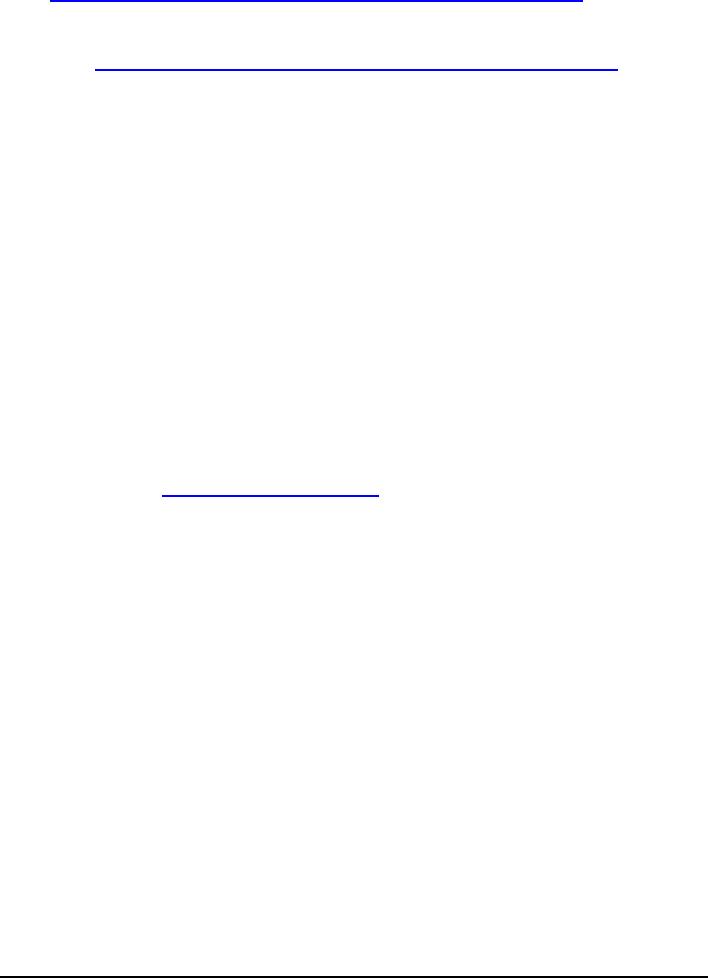
[JABEE
2003] Japan Accreditation
Board for Engineering, Criteria
for Accrediting
Japanese
Engineering
Education Programs
2002-2003.
(http://www.jabee.org/english/OpenHomePage/e_criteria&procedures.htm)
[Juristo
2003] Juristo, N., Analysis
of Software Engineering Degree
Establishment in Europe,
Keynote
Address, 16th Conference on
Software Engineering Education &
Training, March
2003.
(http://www.ls.fi.upm.es/cseet03/keynotes/Natalia_Juristo_CSEET03.pdf)
[Kelemen
1999] Kelemen, C. F. (editor),
Computer
Science Report to the CUPM
Curriculum
Foundations
Workshop in Physics and Computer
Science. Report
from a workshop at
Bowdoin
College, October 28-31,
1999.
[Kemper
1990] Kemper, J., Engineers and
Their Profession, Oxford
University Press,
1990.
[King
1997] King, W.K., Engel,
G., Report
on the International Workshop on Computer
Science
and
Engineering Accreditation, Salt
City, Utah, 1996, Computer
Society, 1997
[Koffmanl
1984] Koffman, E. P., Miller, P.
L., and Wardle, C. E., Recommended
curriculum for
CS1: 1984 a
report of the ACM curriculum task
force for CS1, Communications of
the
ACM,
27(10):998-1001, October
1984.
[Koffman
1985] Koffman, E. P., Stemple,
D., and Wardle, C. E., Recommended
Curriculum for
CS2,
1984: A Report of the ACM
Curriculum Task Force for
CS2, Communications of
the
ACM,
28(8):815-818, August
1985.
[Lee
1998] Lee, E. A. and Messerschmitt, D.
G., Engineering and Education
for the Future,
IEEE
Computer, 77-85,
January 1998.
[Lethbridge
2000] Lethbridge, T., What
Knowledge is Important to a Software
Engineer?, IEEE
Computer, Vol
33, No. 6, pp. 44-50,
May 2000.
[Lidtke
1999] Lidtke, D. K., et.
al., ISCC
'99: An Information Systems-Centric
Curriculum
'99, July
1999. (http://www.iscc.unomaha.edu)
[Lutz
2001] Lutz, M. J., Software
Engineering on Internet Time,
Computer, 34, 5,
36, May 2001.
[Marciniak
1994] Marciniak, J. (editor-in-chief),
Encyclopedia
of Software Engineering,
John
Wiley &
Sons, 1994.
[Martin
1996] Martin, C. D., et.
al., Implementing a Tenth
Strand in the CS
Curriculum,
Communications of
the ACM,
39(12):75-84, December 1996.
[McConnell
1999] McConnell, S. and Tripp,
L., Professional Software
Engineering: Fact or
Fiction?,
IEEE
Software, vol.
16, no. 6, Nov./Dec. 1999,
pp. 1317.
[McDermid,
1991] McDermid, J. (editor),
Software
Engineer's Reference Book,
Butterworth-
Heinemann
Ltd, Oxford, England,
1991.
[Meyer 2001
Meyer, B., Software
Engineering in the Academy,
IEEE
Computer, 34,5,
28-35,
May
2001.
[Mulder
1975] Mulder, M. C., Model
Curricula for Four-Year
Computer Science and
Engineering
Programs: Bridging the Tar
Pit, Computer,
8(12):28-33, December 1975.
[Mulder
1984] Mulder, M. C. and Dalphin, J.,
Computer Science Program
Requirements and
Accreditation--an
Interim Report of the
ACM/IEEE Computer Society
Joint Task Force,
Communications of
the ACM,
27(4):330-335, April
1984.
[Mulder
1998] Mulder, F. and van
Weert, T., Informatics in
Higher Education: Views
on
Informatics
and Non-informatics Curricula, Proceedings of the
IFIP/WG3.2 Working
SE2004
Volume 8/23/2004
79
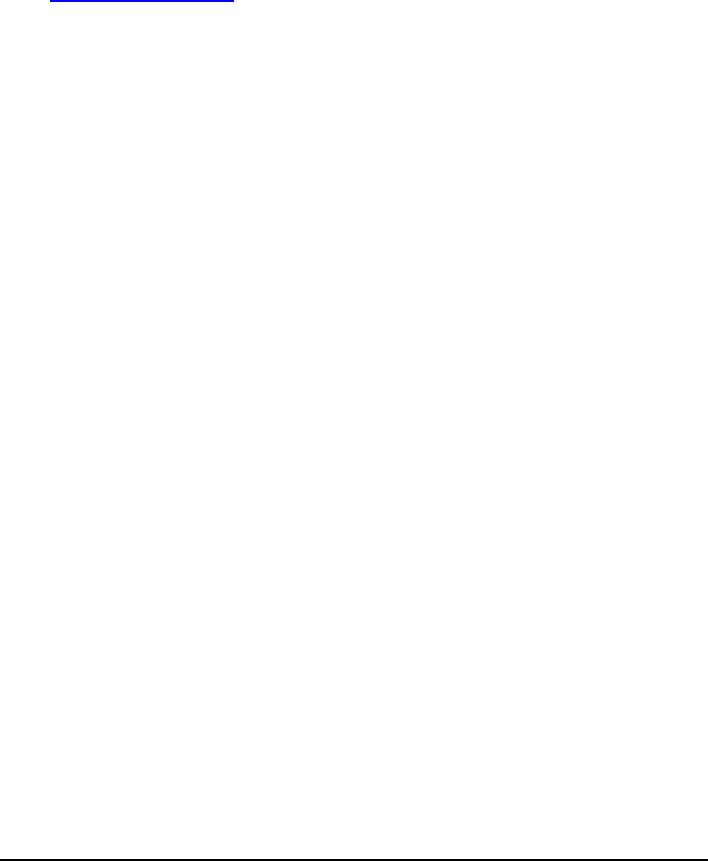
Conference on
Informatics (computer science) as a
discipline and in other
disciplines:
What
is in common?, Chapman
and Hall, London,
1998.
[Myers
1997] Myers, C., Hall, T.
and Pitt D (Eds), Proceedings of the
First Westminster
Conference:
Professional Awareness in Software
Engineering (PASE'96),
London,
February
1996. (Published in edited form
as: The
Responsible Software
Engineer,
Springer-Verlag,
London, 1997, ISBN
3-540-76041-5).
[NACE
2003] National Association of
Colleges and Employers. Job
Outlook 2003 .
(http://www.naceweb.org/)
[Naur
1969] Naur, P. and Randell, B.
(editors), Software
Engineering: Report on a
Conference
Sponsored
by the NATO Science
Committee, (7 11
October 1968), Brussels,
Scientific
Affairs
Division, NATO, 1969.
[Naveda
1997] Naveda, J. F, and Lutz, M. J.,
The Road Less Traveled: A Baccalaureate
Degree
in Software
Engineering, Proceedings of
1997 Conference on Software
Engineering
Education
& Training, April,
1997.
[Neumann
1995] Neumann, P. G., Computer
Related Risks, New
York: ACM Press,
1995.
[Nordheden
1999] Nordheden K. J. and Hoeflich, M.
H., Undergraduate Research
&
Intellectual
Property Rights, IEEE
Transactions on Education, 42(4),
233, 1999.
[NSF
1996] National Science
Foundation Advisory Committee,
Shaping
the Future: New
Expectations
for Undergraduate Education in
Science, Mathematics, Engineering,
and
Technology, Washington
DC: National Science
Foundation, 1996.
[NTIA 1999]
National Telecommunications and
Information Administration, Falling
through
the
Net: Defining the Digital
Divide, Department
of Commerce, November
1999.
[Nunamaker
1982] Nunamaker Jr., J. F.,
Couger, J. D., and Davis G.
B., Information Systems
Curriculum
Recommendations for the 80s:
Undergraduate and Graduate
programs,
Communications of
the ACM,
25(11):781-805, November
1982.
[Oklobdzija
2002] Oklobdzija, V. G. (editor),
The
Computer Engineering
Handbook, CRC
Press,
2002.
[OTA 1988]
Office of Technology Assessment, Educating
Scientists and Engineers:
Grade
School
to Grad School, OTA-SET-377,
U. S. Government Printing Office, June
1988.
[QAA 2000]
Quality Assurance Agency for
Higher Education, A
Report on Benchmark Levels
for
Computing, Southgate
House, 2000.
[Parnas
1999] Parnas, D. L.,
Software Engineering programs
Are Not Computer
Science
Programs, IEEE
Software,
November/December 1999, pp
19-30.
[Paulk
1995] Paulk, M., et.
al., The
capability maturity model:
Guidelines for Improving
the
Software
Process, Reading,
MA: Addison-Wesley, 1995.
[PMI 2000]
Project Management Institute,
Guide
to the Project Management Body
of
Knowledge, PMI,
2000.
[Ralston
2000] Ralston, A., Reilly,
E. D., and Hemmendinger, D. (editors),
Encyclopedia
of
Computer
Science, 4th
edition, Nature Publishing
Group, London, England,
2000.
[Ramamoorthy
1996] Ramamoorthy, C. V. and Thai,
W., Advances in Software
Engineering,
Communications of
the ACM, 29,
10, 47-58, October,
1996.
SE2004
Volume 8/23/2004
80
[Richard
1999] Richard, W. D.,
Taylor, D. E., and Zar, D.
M., A Capstone
Computer
Engineering
Design Course,
IEEE Transactions on
Education, vol
42, no 4, 288 294,
November
1999.
[Roberts
2001] Roberts, E. and Engel, G.
(editors) Computing
Curricula 2001:
Computer
Science, Report of
The ACM and IEEE-Computer Society
Joint Task Force on
Computing
Curricula,
Final Report, December
2001.
[Roberts
1999] Roberts, E.,
Conserving the Seed Corn:
Reflections on the Academic
Hiring
Crisis,
SIGCSE
Bulletin, (31)4:4-9,
December 1999.
[Royce
1970] Royce, W. W., Managing
the Development of Large
Software Systems: Concepts
and
Techniques, Proceedings of
WESCON, August
1970.
[SAC
1967] President's Science
Advisory Commission, Computers in
Higher Education.
Washington
DC: The White House,
February 1967.
[Saiedian
2002] Hossein Saiedian, Donald J.
Bagert, and Nancy R. Mead Software
Engineering
Programs:
Dispelling the Myths and
Misconceptions, IEEE
Software, vol 19 , no.
5,
September /
October, 35 41,
2002.
[Shaw
1985] Mary Shaw. The
Carnegie-Mellon curriculum for
undergraduate computer
science. New
York: Springer-Verlag,
1985.
[Shaw
1990] Mary Shaw "Prospects
for an Engineering Discipline of
Software", IEEE
Software, 7, 6,
November 1990,
pp.15-24
[Shaw
1991] Mary Shaw and James E
Tomayko. Models
for undergraduate courses in
software
engineering.
Pittsburgh:
Software Engineering Institute, Carnegie
Mellon University,
January
1991.
[Shaw
1992] Mary Shaw. We can teach
software better. Computing
Research News
4(4):2-12,
September
1992.
[Shaw
2002] Mary Shaw, "What
makes good research in software
engineering?, International
Journal
on Software Tools for Technology
Transfer, vol 4, DOI
10.1007/s10009-002-0083-
4, June
2002
[Shaw
2001] Mary Shaw, "The
Coming-of-Age of Software Architecture
Research",
Proceedings of the
23rd International Conference on Software
Engineering, Toronto,
pp.
656-664a,
Canada, IEEE Computer
Society, 2001.
[SIGCHI
1992] Special Interest Group on
Computer-Human Interaction, ACM
SIGCHI
Curricula
for Human-Computer
Interaction, New
York: Association for
Computing
Machinery,
1992.
[Sobel
2002] Sobel, A.E.K. and M.
Clarkson, Formal Methods
Application: An Empirical
Tale
of Software
Development, IEEE
Transactions on Software
Engineering, Vol
28. No. 3,
March
2002.
[Sobel
2001] Sobel, A.E.K.,
Emphasizing Mathematical Analysis in a
Software Engineering
Curriculum,
IEEE
Transaction on Education, Vol.
44, No. 2, CD-ROM, May
2001.
[Sobel
2000] Sobel, A.E.K.,
Empirical Results of a Software
Engineering Curriculum
Incorporating
Formal Methods, Proceedings of
SIGCSE, 157-161,
March 2000.
[Taipale,
1997] Taipale, M (Ed), Proceedings of
International Symposium on
Software
Engineering
in Universities, ISSEU'97, Rovaniemi,
Finland, March 1997.
SE2004
Volume 8/23/2004
81
[Thayer
1993] Thayer, R. H. and McGettrick, A.
(editors), Software
Engineering a European
Perspective, IEEE
Computer Society Press, Los
Alamitos, CA 1993.
[Thompson
2002] Thompson, J. B. and Edwards, H.
M., Preliminary Report on
the CSEET 2002
Workshop
"Developing the Software
Engineering Volume of Computing
Curriculum
2001",
Forum
for Advancing Software
Engineering Education
(FASE), Vol. 12
No. 3
(Issue
146), March 15, 2002
[Thompson
2003] Thompson, J. B. and Edwards, H.
M., Report on the 2nd
International Summit
on Software
Engineering Education, ACM
SIGSOFT Software Engineering
Notes,
Volume
28,
Issue 4 (July) pp 21-26,
2003.
[Thompson
2004] Thompson, J. B.,
Edwards, H. M., and Lethbridge,
T.C., Post-Summit
Proceedings
International Summit on Software
Engineering Education (SSEE), held
on
May
21, 2002 and co-located with
the 24th IEEE-CS/ACM
International Conference on
Software
Engineering (ICSE2002), in Orlando,
Florida, University of Sunderland
Press,
Sunderland,
UK, ISBN: 1-873757-34-4 (soft
cover), 1-873757-89-1(CD),
2004.
[Tomayko
1999] Tomayko, James E.,
Forging a discipline: An outline
history of software
engineering
education, Annals of
Software Engineering, v.6
n.1-4, p.3-18, April
1999.
[Tremblay
2000] Tremblay, G., Formal
Methods: Mathematics, Computer Science,
or Software
Engineering?,
IEEE
Transactions on Education, vol
43, no 4, 377 382, November
2000.
[Tucker
1991] Tucker, A. B., et.
al., . Computing
Curricula '91,
Association for
Computing
Machinery
and the IEEE Computer
Society, 1991.
[Umphress
2002] Umphress, D.A.,
Hendrix, T. D., and Cross, J. H.,
Software Process in
the
Classroom:
The Capstone Project
Experience, IEEE
Software, vol 19 ,
no. 5,
September/October,
78 85, 2002.
[Walker
1996] Walker, H.M. and
Schneider, G. M., A Revised
Model Curriculum for a
Liberal
Arts
Degree in Computer Science, Communications
of the ACM,
39(12):85-95, December
1996.
[Zadeh
1968] Zade, L. A., Computer
Science as a Discipline, Journal
of Engineering Education,
58(8):913-916,
April 1968.
SE2004
Volume 8/23/2004
82
Table of Contents:
- INTRODUCTION
- The Software Engineering Discipline
- Guiding Principles
- Overview of Software Engineering Education Knowledge
- Guidelines for SE Curriculum Design and Delivery
- Courses and Course Sequences
- Adaptation to Alternative Environments
- Program Implementation and Assessment
- Bibliography for Software Engineering Education
- Detailed Descriptions of Proposed Courses
- Contributors, Reviewers and Index